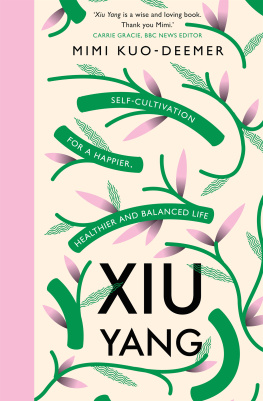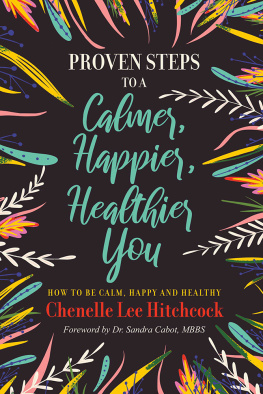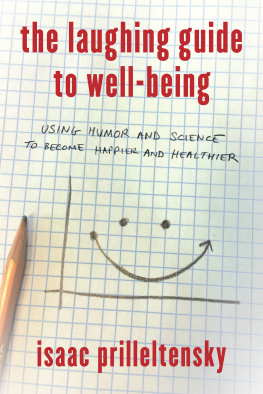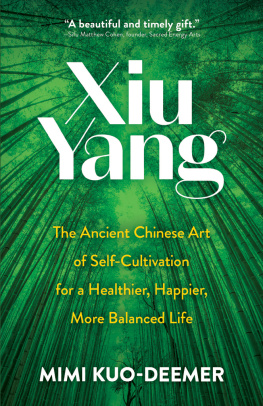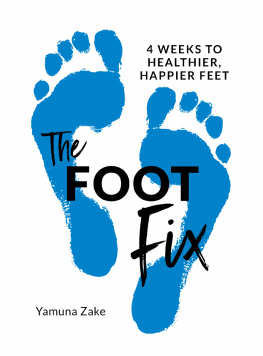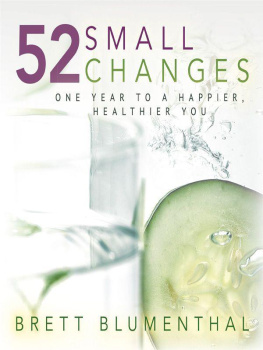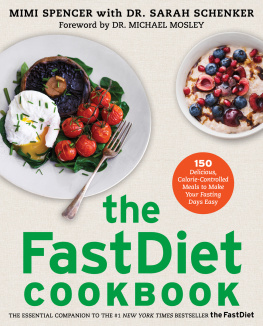Kuo-deemer Mimi - Xiu Yang : Self-cultivation for a Healthier, Happier and Balanced Life
Here you can read online Kuo-deemer Mimi - Xiu Yang : Self-cultivation for a Healthier, Happier and Balanced Life full text of the book (entire story) in english for free. Download pdf and epub, get meaning, cover and reviews about this ebook. publisher: Hachette Book Group USA, genre: Religion. Description of the work, (preface) as well as reviews are available. Best literature library LitArk.com created for fans of good reading and offers a wide selection of genres:
Romance novel
Science fiction
Adventure
Detective
Science
History
Home and family
Prose
Art
Politics
Computer
Non-fiction
Religion
Business
Children
Humor
Choose a favorite category and find really read worthwhile books. Enjoy immersion in the world of imagination, feel the emotions of the characters or learn something new for yourself, make an fascinating discovery.
- Book:Xiu Yang : Self-cultivation for a Healthier, Happier and Balanced Life
- Author:
- Publisher:Hachette Book Group USA
- Genre:
- Rating:4 / 5
- Favourites:Add to favourites
- Your mark:
- 80
- 1
- 2
- 3
- 4
- 5
Xiu Yang : Self-cultivation for a Healthier, Happier and Balanced Life: summary, description and annotation
We offer to read an annotation, description, summary or preface (depends on what the author of the book "Xiu Yang : Self-cultivation for a Healthier, Happier and Balanced Life" wrote himself). If you haven't found the necessary information about the book — write in the comments, we will try to find it.
Kuo-deemer Mimi: author's other books
Who wrote Xiu Yang : Self-cultivation for a Healthier, Happier and Balanced Life? Find out the surname, the name of the author of the book and a list of all author's works by series.
Xiu Yang : Self-cultivation for a Healthier, Happier and Balanced Life — read online for free the complete book (whole text) full work
Below is the text of the book, divided by pages. System saving the place of the last page read, allows you to conveniently read the book "Xiu Yang : Self-cultivation for a Healthier, Happier and Balanced Life" online for free, without having to search again every time where you left off. Put a bookmark, and you can go to the page where you finished reading at any time.
Font size:
Interval:
Bookmark:
Things I knew about myself but dimly, things I once knew but had forgotten, things I never knew at all. Xiu Yang is a wise and loving book. Thank you, Mimi.
Carrie Gracie, BBC News Editor, producer, presenter and former China editor
Xiu Yang is an amazingly clear book about how to live in harmony with the world and universe by first experiencing harmony within ourselves. This is referred to as the art of self-cultivation, meaning the cultivation and nurturing of ones heart, the seat of consciousness, the home of the eternal, and the supreme sovereign. Mimi makes these ideas easy to understand and very compelling.
Erich Schiffmann, author of Yoga: The Spirit and Practice of Moving into Stillness
In this slender but powerful book, Mimi Kuo-Deemer unlocks xiu yang for the modern reader, demystifying it without losing the eternal, timeless qualities that have made it one of Chinese peoples most potent ways of living a good, honourable, happy and healthy life.
Ian Johnson, Pulitzer Prize-winning author of The Souls of China: The Return of Religion After Mao
Mimi Kuo-Deemer doesnt simply write about these ancient teachings she shares the fruits of practising them, processing timeless truths in her own heart and mind and body, so that we can do so in ours.
Martin Aylward, founder of Worldwide Insight and co-founder of the Mindfulness Training Institute and Moulin de Chaves
Xiu Yang is a wonderful and clear resource Elucidating teachings nearly lost to humankind, Mimi Kuo-Deemer shines her inner light to show us the way to, as she so aptly puts it, a self that is whole and complete. Highly recommended.
Max Strom, author of A Life Worth Breathing , teacher of breath work and public speaker
Mimi brings together the art, science and being-ness of xiu yang into a very accessible, practical and relevant guide toward a healthier and happier human existence for each one of us.
Simon Low, international yoga teacher and principal of The Yoga Academy
In this beautiful book, Mimi Kuo-Deemer adapts ancient Chinese practices to our frantic modern lives. She harnesses traditional wisdoms to her own distinctively humane brand of teaching to produce a guide for clearer, calmer living, in which we are at one with the world around us, rather than in constant conflict with it.
Tash Aw, novelist
This is an absolutely essential, and very practical survival guide for life giving us clear tools to move into a life of balance and sustainable well-being.
Kat Farrants, founder of Movement for Modern Life
This book is a beautiful and timely gift that acts as both a guide and a touchstone. When travelling in uncharted terrain its important, if not imperative, to have a guide someone who has travelled the path before and can help you stay safe, healthy, inspired, and perhaps reveal gems hidden in plain sight. The landscape is within, the gifts are immense, and your guide is Mimi she possesses a map for all to have a more rich, simple, and radiant life.
Sifu Matthew Cohen, teacher and founder of Sacred Energy Arts
This is a knowledgeable, compassionate, wise and insightful book. Writing clearly and concisely, Mimi takes the reader on a journey of cultivating the self. She skilfully weaves together personal stories, philosophical reflections and practical points.
Norman Blair, author of Brightening Our Inner Skies: Yin and Yoga
Mimi has taken ancient principles and translated them beautifully into an accessible and practical path of balance, wisdom and wholeness.
Mark Coleman, meditation teacher and author of Awake in the Wild, Make Peace with your Mind and From Suffering to Peace
To Aaron, who brings laughter and love to my life.
Also in memory of Mayling, who spread positivity and joy at every turn.

ON LANGUAGE: There are two types of English transliteration from Chinese: pinyin and Wade-Giles. In most cases, the worldwide standard of pinyin is used. Exceptions are when the Wade-Giles transliteration has fallen into common use in English, such as tai chi. Traditional, or complex Chinese characters are also used instead of the simplified forms. When referencing Buddhist terminology, Pali is used and, when referencing yogic terminology, Sanskrit is used.
ON TEXTS USED: Many of the textual references used in Xiu Yang come from an ancient, early Daoist text known as Inward Training ( Neiye ). This fourth-century BCE text is not well known, but is arguably the oldest mystical text in China. Though I also reference other more well-known Chinese classical texts such as the Laozi , or Dao De Jing , Zhuangzi and the Confucian Analects within this book, I have drawn particularly from Inward Training (Neiye) to illustrate the earliest sources and basis for self-cultivation in the Chinese tradition. The mental and physical techniques for self-discipline in Inward Training (Neiye) were aimed at achieving physical health, longevity and spiritual transcendence. In other words, they sought to provide people a means to achieve a happier, healthier and more balanced way of living, which is also the goal of this book.
Roth, Psychology and Self-Cultivation in Early Taoistic Thought, Harvard Journal of Asiatic Studies (1991), p. 611.
Xiu yang (pronounced sheow yaang) is the ancient Chinese art of self-cultivation. For centuries the aims of xiu yang have been improved health, a long and happy life, and harmony with the natural world. Xiu yang is the bedrock of Chinese healing and spiritual practices. The sages, emperors and spiritual seekers who have embraced xiu yang believed in smoothing out roughness and irregularities until our bodies and minds were nurtured, our energies strengthened, and our spirits integrated and guided by the forces of the natural world. At its core xiu yang asks us: what positive qualities do we wish to cultivate in our lives? It shows us that what we plant and grow can be the best in ourselves, which can also reflect overall goodness and well-being within society, nature and the universe. As an ancient wisdom xiu yang is a practice that we can follow today as a fundamental path towards a happier, healthier and balanced life.
A seed knows how to grow and flower,
humans have a similar capacity
A seed does indeed know how to grow and flower yet anyone who has ever cultivated a garden also knows that nature best rewards those who tend to their garden. Tending a garden is a daily task: enriching the soil with manure, watering delicate seedlings, watching for early signs of disease, protecting plants from damaging winds and frosts, and harvesting fruits and vegetables when they are at their peak ripeness. When these tasks are done with careful attention and consistency, it is wonderful to see how the garden glows with vitality and rewards us with abundant and nutritious food. Yet after a few weeks, months or years of neglect, that same garden has a way of turning in the other direction: towards disarray, disease and decay. Tending a garden is not much different from tending ones home, tending a relationship or tending ones health. If we regularly clean and tidy our home, it is a lovely and calming place to live and to share with treasured guests. If we invest time and energy in our relationships, we build enduring connections that have a stronger chance of surviving the tests of time. And nowhere are the results of consistent care more obviously demonstrated than through the presence of good health, mental clarity and joyfulness.
Yet today we face a worldwide health crisis of illnesses and diseases, which are largely the result of unbalanced lifestyle habits, poor diet and plain and simple lack of movement and exercise. Weve been indoctrinated to believe that health and health insurance are the purview of health practitioners, whose responsibility it is to treat our sicknesses and woes once they take hold. Within this cultural context, the simple yet profound message of xiu yang might easily be overshadowed, yet the urgency and relevance of this book will be apparent to anyone interested in cultivating and preserving their physical, mental and emotional well-being. The fundamental message of xiu yang is that to a large extent our health and happiness are within the domain of our own control, should we wish to exercise that sovereignty.
Font size:
Interval:
Bookmark:
Similar books «Xiu Yang : Self-cultivation for a Healthier, Happier and Balanced Life»
Look at similar books to Xiu Yang : Self-cultivation for a Healthier, Happier and Balanced Life. We have selected literature similar in name and meaning in the hope of providing readers with more options to find new, interesting, not yet read works.
Discussion, reviews of the book Xiu Yang : Self-cultivation for a Healthier, Happier and Balanced Life and just readers' own opinions. Leave your comments, write what you think about the work, its meaning or the main characters. Specify what exactly you liked and what you didn't like, and why you think so.

